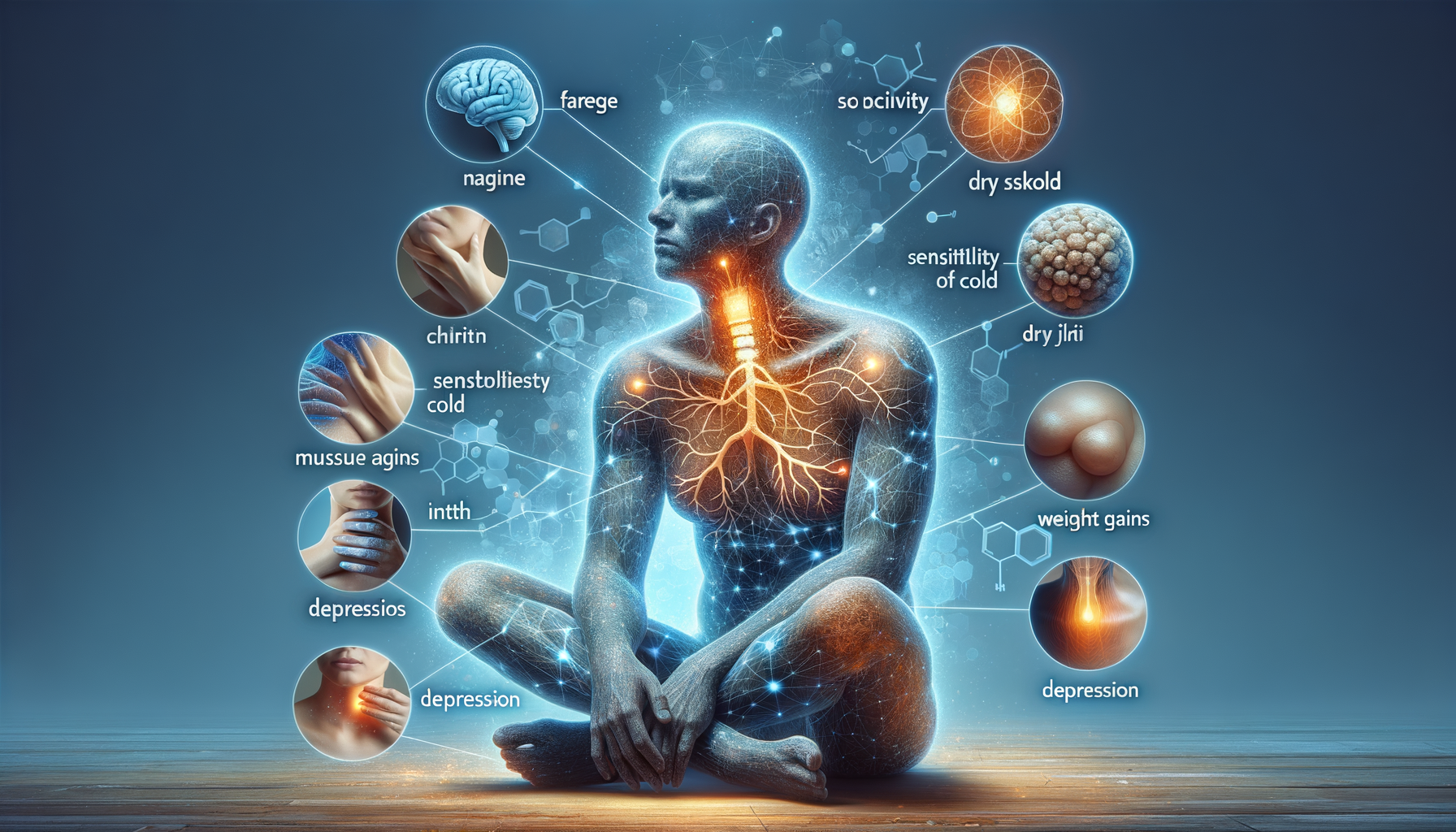
Recognizing the Early Indicators of an Underactive Thyroid
Understanding the Thyroid Gland and Its Function
The thyroid gland, a butterfly-shaped organ located at the base of the neck, plays a crucial role in regulating the body’s metabolism through hormone production. It releases hormones such as thyroxine (T4) and triiodothyronine (T3), which control how the body uses energy. These hormones impact almost every organ in the body and are essential for processes such as heart rate, body temperature, and weight management.
An underactive thyroid, or hypothyroidism, occurs when the gland doesn’t produce enough hormones. This can lead to a slowdown in bodily functions, resulting in various symptoms that affect daily life. Understanding the thyroid’s function is vital to recognizing when things might be amiss, as the symptoms can be subtle and develop gradually over time.
Common causes of hypothyroidism include autoimmune diseases, such as Hashimoto’s thyroiditis, surgical removal of the thyroid, radiation treatment, and certain medications. Identifying these causes can help in early diagnosis and management, reducing the impact on one’s health.
Common Symptoms of an Underactive Thyroid
Hypothyroidism can manifest in numerous ways, making it a condition that often goes unnoticed until symptoms become severe. Some of the most prevalent symptoms include:
- Fatigue and sluggishness
- Weight gain despite unchanged eating habits
- Cold intolerance
- Dry skin and hair
- Muscle weakness and joint pain
These symptoms occur as the body’s metabolism slows, affecting energy levels and physical health. Fatigue is one of the earliest and most common signs, often mistaken for lifestyle stress or lack of sleep. Similarly, weight gain can be attributed to dietary choices, delaying diagnosis. It’s crucial to pay attention to these symptoms, especially if they persist, and consult a healthcare provider for further evaluation.
The Emotional and Mental Impact of Hypothyroidism
An underactive thyroid doesn’t just affect physical health; it can also have significant emotional and mental repercussions. Individuals may experience mood swings, depression, or anxiety due to hormonal imbalances. The fatigue and lethargy associated with hypothyroidism can further exacerbate these feelings, leading to a decreased quality of life.
Recognizing these emotional symptoms is essential, as they can often be overlooked or misdiagnosed as standalone mental health issues. A comprehensive approach that considers both physical and emotional health is necessary for effective management. Support from mental health professionals, along with medical treatment, can help individuals cope with the emotional challenges of hypothyroidism.
Diagnosing and Treating Hypothyroidism
Diagnosis of hypothyroidism typically involves a combination of clinical evaluation and blood tests to measure levels of thyroid-stimulating hormone (TSH) and thyroid hormones. Elevated TSH levels often indicate an underactive thyroid, prompting further investigation to determine the underlying cause.
Treatment usually involves hormone replacement therapy with synthetic thyroxine, which helps restore normal hormone levels and alleviate symptoms. Regular monitoring and dosage adjustments are necessary to ensure effective management. In addition to medication, lifestyle changes such as a balanced diet and regular exercise can support overall health and well-being.
Early diagnosis and treatment are crucial in preventing complications and improving quality of life. Educating oneself about the symptoms and seeking medical advice promptly can make a significant difference in managing hypothyroidism effectively.
Living with Hypothyroidism: Tips and Strategies
Managing life with an underactive thyroid involves more than just medication. Adopting a holistic approach that includes lifestyle modifications can greatly enhance one’s well-being. Here are some strategies to consider:
- Maintain a balanced diet rich in iodine, selenium, and zinc to support thyroid function.
- Engage in regular physical activity to boost energy levels and improve mood.
- Prioritize sleep and stress management techniques to help combat fatigue.
- Stay informed about the condition and participate in support groups for additional guidance and encouragement.
By taking a proactive role in managing hypothyroidism, individuals can lead fulfilling lives despite the challenges posed by the condition. Regular communication with healthcare providers and staying informed about new developments in treatment can further aid in effectively managing symptoms.


